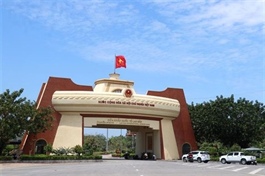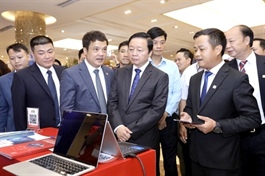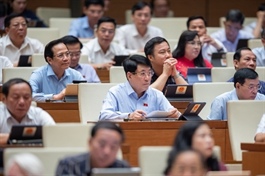MPI builds new investment incentives to match global minimum tax rule
MPI builds new investment incentives to match global minimum tax rule
The Ministry of Planning and Investment (MPI) is working on designing incentives and measures to support new investment activities amid the upcoming application of the global minimum tax.

Production at Jasan Textile & Dyeing Vietnam. Viet Nam has opened its door for foreign investment for 35 years and provided many incentives for investors. — VNA/VNS Photo |
Viet Nam is one of the countries to join the OECD global minimum tax rule, a minimum rate of tax on corporate income internationally agreed upon and accepted by individual jurisdictions which was introduced in 2021. Each country would be eligible to a share of revenue generated by the tax. On August 4, 2022, the Prime Minister formed a special taskforce led by Deputy Prime Minister Le Minh Khai for the studying and proposal of measures related to the OECD’s deal.
MPI Deputy Minister Nguyen Thi Bich Ngoc said that the PM has directed the taskforce to focus on reviewing, completing the related institution and regulations and building a roadmap for the application of the rule on the basis of learning international experience and ensuring suitable application of the rule in Viet Nam.
Viet Nam has opened its door for foreign investment for 35 years and provided many incentives for investors, she said, adding her ministry is working to adjust its investment incentive policy to ensure compatibility with the global minimum tax but with the least impact on businesses investing in Viet Nam.
The official said that the foreign investment attraction strategy for the 2021-30 period aims to draw suitable markets and partners for cooperation to suit the world regional situation, repositioning investment flows and reducing dependence on risky and potentially disputed markets.
At the same time, the strategy prioritises the connection of global production and supply chains, attracting green investment, high technology, supporting technology, and advanced governance methods, ensuring the balance between the interests of the investors and the interests of the State and the people during foreign investment cooperation activities in the spirit of harmonising benefits and sharing risks, she said.


























